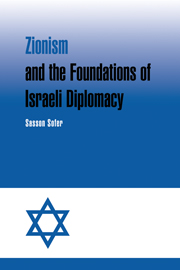Book contents
- Frontmatter
- Contents
- Preface
- Glossary
- Part I Setting the scene
- Part II Appearances and reality
- 4 The political world of the founding fathers
- 5 The vicissitudes of hegemony
- 6 The revolutionary maximalists
- 7 The reluctant vanguard
- 8 The lost avant-garde
- 9 The Communists – in captivity
- Part III The fallacies of Realpolitik
- Part IV Sectarian interests and a façade of generality
- Part V God's dispositions
- Part VI The boundaries of the intelligentsia
- Notes
- Index
4 - The political world of the founding fathers
Published online by Cambridge University Press: 21 December 2009
- Frontmatter
- Contents
- Preface
- Glossary
- Part I Setting the scene
- Part II Appearances and reality
- 4 The political world of the founding fathers
- 5 The vicissitudes of hegemony
- 6 The revolutionary maximalists
- 7 The reluctant vanguard
- 8 The lost avant-garde
- 9 The Communists – in captivity
- Part III The fallacies of Realpolitik
- Part IV Sectarian interests and a façade of generality
- Part V God's dispositions
- Part VI The boundaries of the intelligentsia
- Notes
- Index
Summary
Active patience, not without some guile and resourcefulness …
Turgenev, Fathers and SonsDiplomacy, the most aristocratic profession of the European continent, was very far removed from the world of the Jewish socialist intelligentsia from which Israel's founding fathers emerged. They wanted, above all, to create an egalitarian, idealistic, even Utopian society, scarcely concerning themselves with international affairs until forced to do so after gaining the hegemony for which they had aspired, in the early 1930s. It is, indeed, one of the most paradoxical facts of Jewish history that the statesmen who led the Jewish community of Palestine to independence, displaying crafty diplomacy and military prudence, emerged from the Jewish socialism of fin de siècle imperial Russia.
Compared with the intellectual wealth and originality of the Zionist Left in social and economic spheres, its approach to foreign affairs was characterised by conceptual poverty. As was the case with the conquest of the soil, the settlement of the land and the struggle for political supremacy, Zionism was obliged to master the field of diplomacy by a process of trial and error. In the final event, socialism was always an impediment to the growth of a coherent foreign policy. The point of departure of the first settlers was not far removed from the view expressed by the first Commissar for Foreign Affairs of Soviet Russia, Leon Trotsky, who for a time between the Bolshevik Revolution and the spring of 1918 strove to dismantle the foundations of European diplomacy.
- Type
- Chapter
- Information
- Zionism and the Foundations of Israeli Diplomacy , pp. 59 - 95Publisher: Cambridge University PressPrint publication year: 1998
- 1
- Cited by

